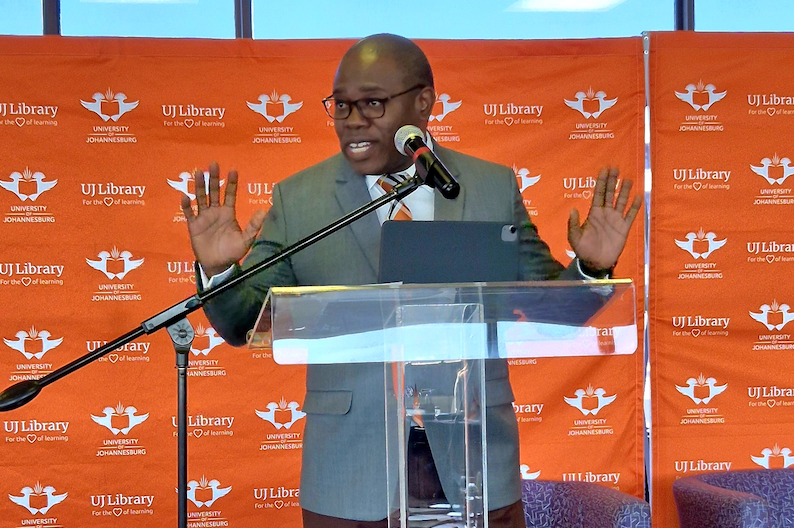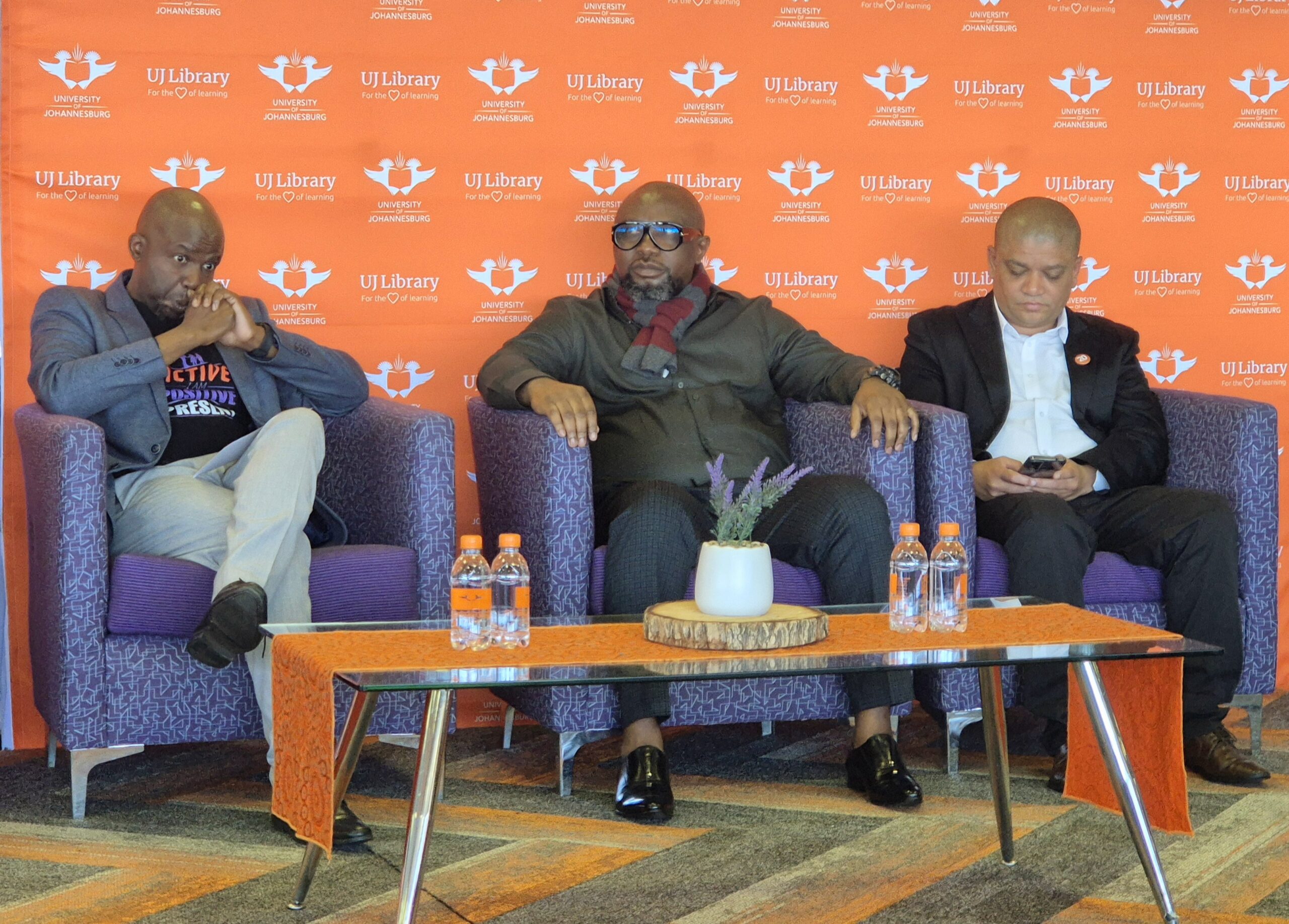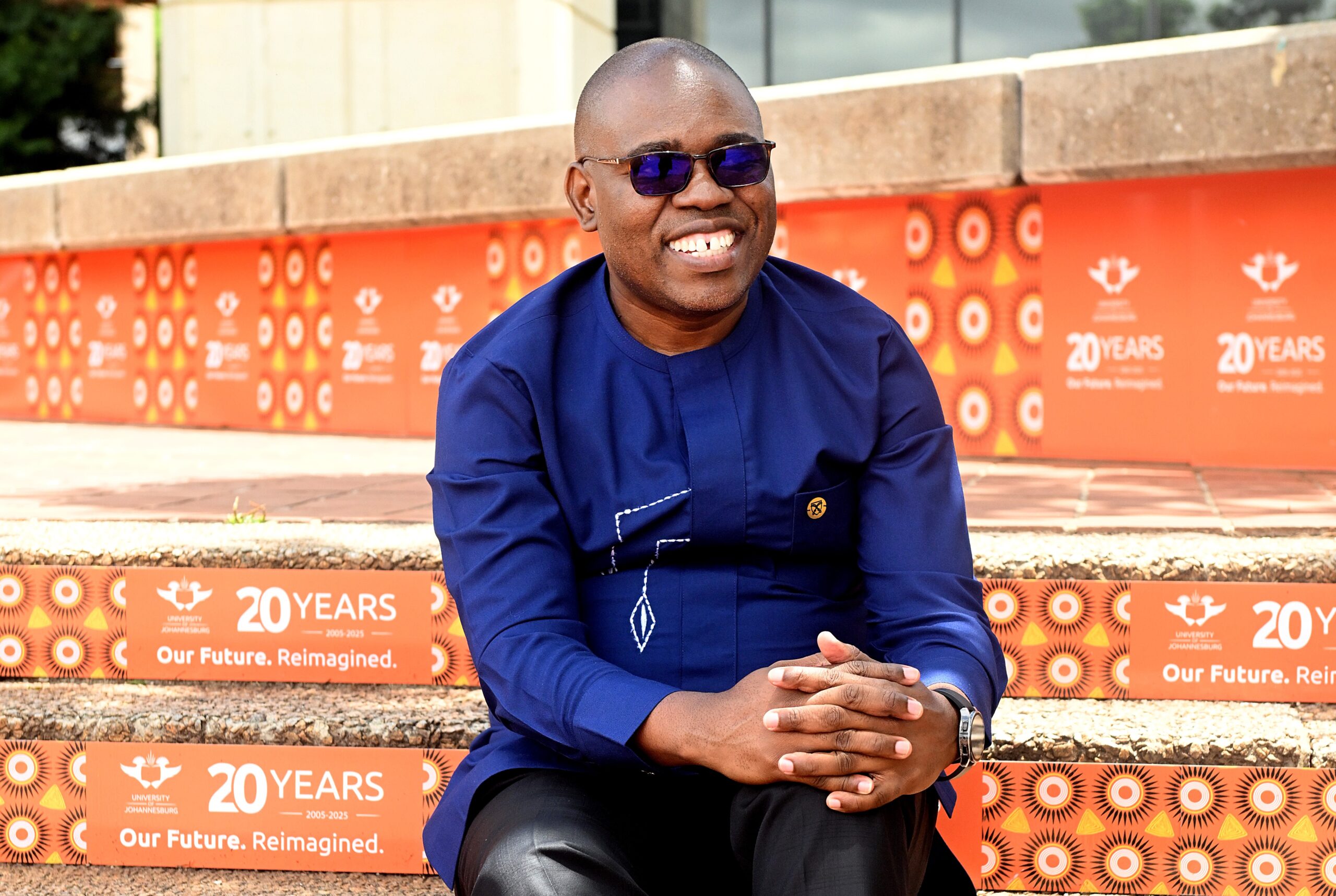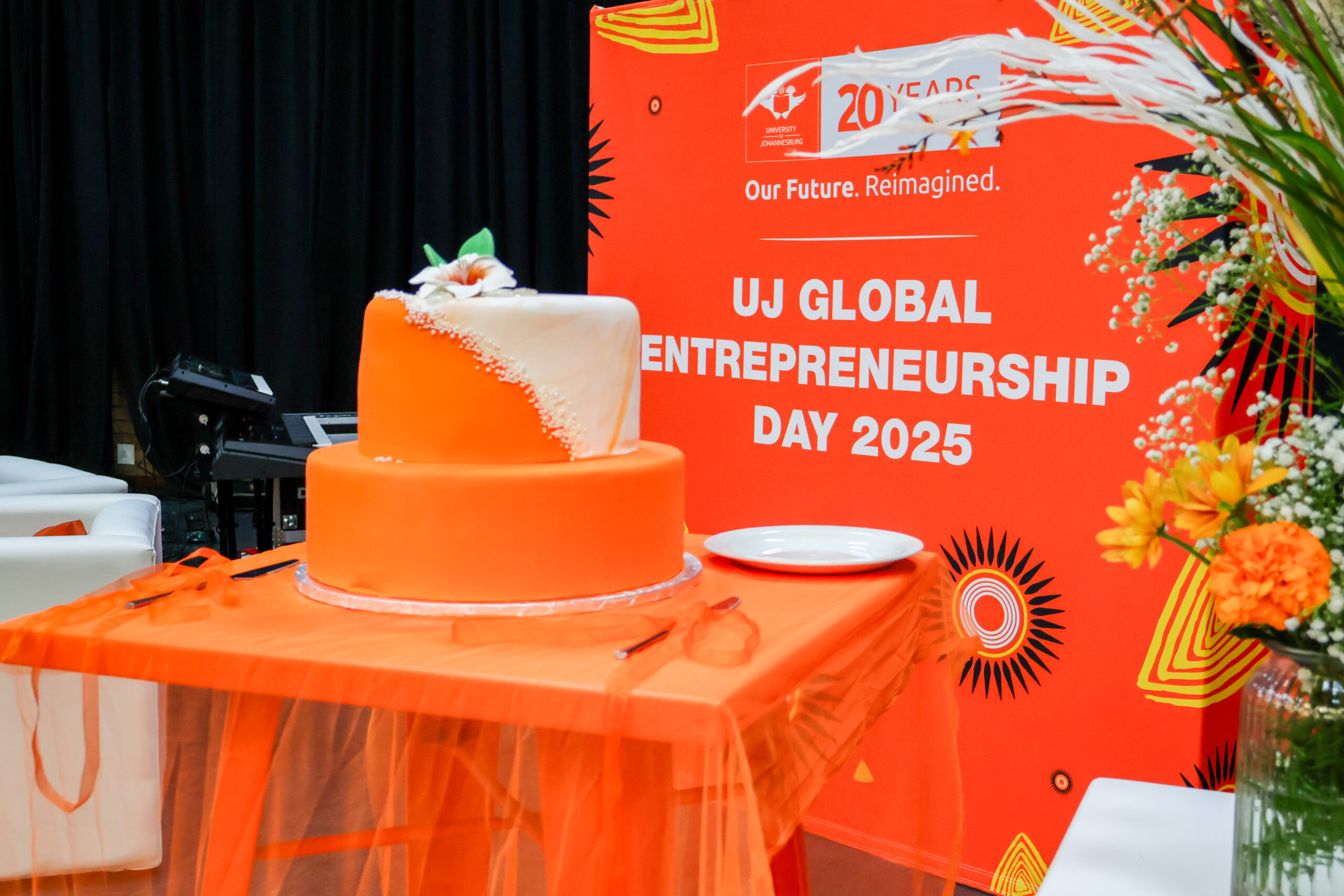As South Africa continues to confront a pervasive crisis of gender-based violence and femicide (GBVF), propelled by detrimental gender norms, trauma, and pervasive silence among men, the University of Johannesburg’s (UJ) Transformation Unit and Vice-Chancellor and Principal Professor Lethlokwa Mpedi hosted a Men’s Forum to further discuss these social ills.
The “Man to Men” initiative seeks to address these issues by encouraging men to redefine masculinity as a matter of accountability, empathy, and healing. Men are urged to examine their societal roles within destructive norms and to advocate for meaningful change.

Speaking at the event, Prof Mpedi reflected on the importance of leading with accountability as men.
“We should start with education. Educate ourselves and others about GBV. Understanding the social norms, power dynamics and cultural messages that have allowed such behaviour to persist is the first step towards challenging and dismantling them.”
He added that when people witnessed harmful behaviour or derogatory comments, they had a duty to intervene and speak up.
“Abusers come in all forms. Each of us has the ability to challenge the status quo and rewrite masculinity. GBV affects us all. It requires our urgent attention and action. Each statistic represents a human life. We must commit to creating spaces where respect and equality are the norms and not the exception.”
He vocalised the need for modelling healthy relationships – actions speaking louder than words – set an example for other men and most importantly boys.
“They need to see that true strength lies in compassion, understanding and care. Not in dominance and control.”
He encouraged those in attendance, which included staff, students and stakeholders, to hold each other accountable.
“Encourage your peers to reflect on their behaviours and challenge their beliefs. We must create networks of experiences and strategies for leading by example.”
Investing in change and healthy masculinity, whether through donations, volunteer work or advocacy, time must be invested in building communities positively.
“I urge each one of us to reflect on the influence we have in our spheres of life. Our voices matter, our actions make a difference. Together we have the power to lead with accountability, inspiring others to join us in the fight against GBV. Let us be the men who rise to the challenge and ignite a flame of possibility or a future where respect and equality reign.
The event provided a platform for candid discussions facilitated by community leaders, faith figures, psychologists, and survivors, aiming to cultivate a new paradigm of masculinity—one that upholds dignity, emotional intelligence, and shared responsibility for safeguarding women and children.

A panel discussion with advocates for change Byron Veldman, Dr Emmanuel Rowlands, and Olefile Masangane took place with a focus on two key areas –
- Transforming Masculinity: Deconstructing harmful gender norms and promoting emotionally intelligent, accountable, and healing-centered forms of manhood.
- Building a Culture of Action and Accountability: Mobilising men to break the silence, challenge abusive behavior among peers, and actively contribute to ending GBVF through advocacy, mentorship, and community engagement.
The discussion enlightened attendees on addiction, toxic masculinity and the role language plays in creating awareness.
Programme director, Dr Sifiso Mnisi, encourages men to explore ways to fight the scourge of GBV.
“Exploring and opening up the conversation about accountability is important and urgent in our time. If we ignore this, we will be doing so at our own peril.”
UJ Chief Operations Officer, Dr Mpoti Ralephata closed the forum saying that dialogues like this amplified UJ’s values.
“When you share experiences and advice, you have shown love. The issues we discuss here are societal issues. In you, there is potential to do good or evil. Always choose to do good.”



